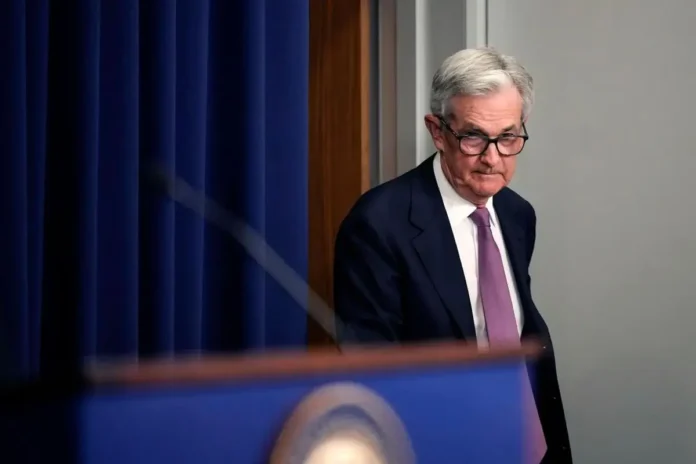This Content Is Only For Paid Member
The nation’s largest banks are reaping the rewards of soaring interest rates, but their customers are not sharing in the benefits. In the third quarter, JPMorgan Chase (JPM), Citigroup (C), and Wells Fargo (WFC) all reported increased earnings, primarily due to the surge in interest income made possible by higher rates.
Their size gives these banks an advantage, allowing them to capitalize on the favorable interest rates by charging more for loans while keeping deposit interest rates relatively low compared to their smaller competitors. This favorable situation is reflected in a crucial profitability indicator known as net interest income, which measures the difference between what banks earn from loans and what they pay for deposits.
Compared to the same period the previous year, all three banks saw significant increases in this metric, collectively amassing a record $50 billion, an 18% rise from the previous year. JPMorgan and Wells Fargo even revised their full-year net interest income forecasts upwards.
However, there were concerning signs that some borrowers were facing challenges. JPMorgan, Citigroup, and Wells Fargo all reported higher loan write-offs as losses, totaling $3.98 billion, a 31% increase from the previous quarter and a 105% jump from the same period a year ago. This was the highest collective figure for the three banks since the early days of the pandemic in the second quarter of 2020.
Citigroup’s CEO, Jane Fraser, noted that U.S. consumers were reducing their spending, indicating an increasingly cautious consumer. She also mentioned that affluent customers were driving most of the spending growth, while those with lower credit scores were showing signs of weakness. Citi expected its credit card losses to return to pre-COVID levels by the end of the year.
Wells Fargo’s CEO, Charlie Scharf, observed that, although the economy remained resilient, there were indications of a slowing economy with declining loan balances and slightly deteriorating charge-offs. Wells Fargo had charge-offs of $850 million, $622 million of which came from consumer loans, and the bank expected its net interest income to drop by 3% from the third quarter to the fourth. CFO Mike Santomassimo identified commercial real estate as a weak spot, predicting a potential increase in losses over time.
JPMorgan’s CEO, Jamie Dimon, sounded a cautionary note, acknowledging that consumers and businesses generally remained healthy but were spending down their cash buffers while inflation risks remained high, which could lead to further interest rate hikes. He also highlighted global uncertainties due to conflicts in Ukraine and Israel, which could affect energy, food markets, global trade, and geopolitical relationships. He expressed concern, saying, “This may be the most dangerous time the world has seen in decades.”
Dimon admitted that the bank had been profiting excessively from net interest income and lower credit costs, both of which he expected to normalize in due course. He stated that there was a debate within the bank about when this normalization would occur. S&P Global Market Intelligence director for financial institutions research, Nathan Stovall, interpreted Dimon’s comments as an attempt to convey caution to the market, indicating that the bank anticipated higher credit costs and tougher times ahead.
In contrast, regional bank PNC (PNC) faced challenges typical of smaller lenders in this period of rising rates. Its profits, revenue, and net interest income all declined compared to the previous year. The bank anticipated another drop in net interest income in the fourth quarter. To adapt to uncertain economic conditions, PNC planned to reduce its staff by approximately 4%, aiming to save $325 million. Several other regional banks, including Truist (TFC), had also cut jobs in recent months to cope with these unpredictable economic conditions.
PNC’s stock declined by 3% on Friday, while Citigroup’s stock saw a slight decline later in the day. JPMorgan and Wells Fargo, however, experienced stock price increases.
PNC’s CEO, William Demchak, attributed the bank’s challenges to the Federal Reserve’s actions in the coming year, indicating that the future course of net interest income would depend on the Fed’s decisions.




